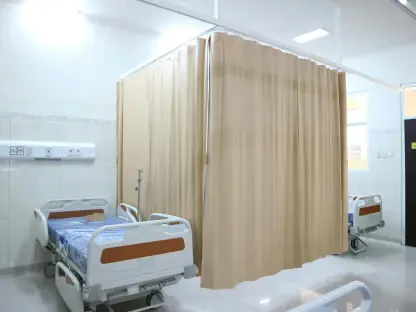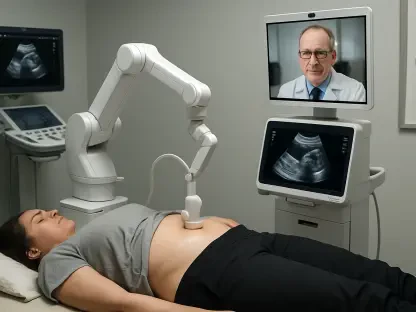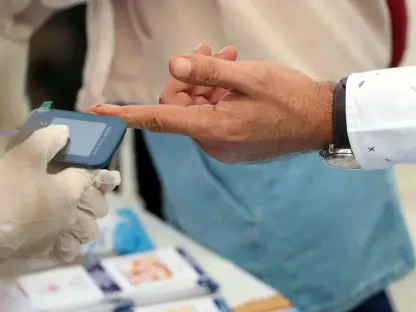Navigating medical bills can be a daunting task, especially when faced with unexpected expenses and complex healthcare policies. In Indianapolis, hospitals have recognized the growing need for financial support and have developed programs and resources to assist patients with their medical costs. Amidst the reality that one in five families in Marion County struggles with medical debt in collections, local hospitals are actively addressing this issue through initiatives aimed at reducing the burden on individuals and families. These programs offer various levels of financial assistance and guidance, ensuring that everyone has access to necessary medical care without the stress of overwhelming bills.
Each hospital in Indianapolis presents its own array of opportunities for patients seeking financial assistance. Hospitals such as Eskenazi Health, Community Health, IU Health, and Ascension St. Vincent are spearheading efforts to provide support to community members in need. Understanding these available options is crucial for patients who either lack insurance coverage or find that their existing plans do not sufficiently cover their medical expenses. Through programs like interest-free payment plans, income-based financial assistance, and medication assistance counseling, hospitals provide tangible solutions to alleviate financial concerns. Moreover, specialized counselors are available to guide individuals through the application processes, offering personalized consultations and strategic advice on how to best approach hospital bills.
Programs and Assistance at Indianapolis Hospitals
Indianapolis hospitals offer financial assistance programs designed to address the needs of their diverse patient population. Eskenazi Health, Community Health, IU Health, and Ascension St. Vincent each have unique programs tailored to provide varying levels of support to those struggling with healthcare costs. For instance, Community Health extends interest-free payment plans to patients, irrespective of their income levels, allowing them to manage bills without incurring additional interest charges. They also operate a financial assistance program that evaluates aid based on household income and size, aligning discounts with individual financial circumstances. This two-pronged approach ensures comprehensive support to a broader range of patients.
In addition to payment plans, hospitals offer guidance for medication costs as part of their assistance initiatives. Dedicated medication assistance counselors provide crucial support, directing patients to affordable medication options and offering resources like coupons and generic alternatives. This service, vital for patients requiring ongoing prescriptions, significantly reduces out-of-pocket expenses associated with pharmaceutical needs. By connecting patients with viable options, hospitals ensure that medication costs do not become a barrier to accessing necessary treatment. Altogether, these multifaceted programs serve to relieve patients of overwhelming bills and provide pathways to convenient and affordable healthcare solutions.
Practical Steps for Obtaining Assistance
Applying for financial assistance before receiving hospital care can significantly streamline the process. Individuals are encouraged to start the application early to avoid the stress of managing it during hospital stays or emergencies. This proactive approach allows patients to explore options and establish eligibility for various programs ahead of time, often with the help of hospital financial counselors. These counselors are instrumental in guiding patients through the complexities of the application process, explaining criteria, and ensuring all required documentation is complete and available.
Having an organized approach to gathering requisite documents is crucial to the financial assistance application process. This includes obtaining proof of income, such as pay stubs or tax returns, records of assets, and all outstanding medical bills needing settlement. These documents allow hospitals to accurately assess the financial situation and provide appropriate assistance. Seeking direct advice from financial counselors can further ease the process, as different hospitals may have distinct criteria for eligibility and documentation. Understanding each hospital’s specific requirements and tips regarding application success not only enhances the likelihood of securing aid but also empowers patients to navigate their financial situations confidently.
Understanding Policies and Eligibility Criteria
To effectively apply for financial assistance, patients need to familiarize themselves with each hospital’s financial assistance policy. These policies often outline eligibility criteria, detailing earnings thresholds and discount percentages based on income levels and insurance status. For example, IU Health integrates federal poverty levels into their assistance plans, which provide varying levels of support depending on insurance coverage and participation in other assistance programs like SNAP or Medicaid. Understanding these intricacies allows patients to optimize the aid they receive and plan their healthcare finances judiciously.
Moreover, hospitals offer direct consultations with financial counselors for those seeking personalized guidance. These counselors act as navigators, helping patients decipher the sometimes-complex landscape of medical billing assistance and eligibility. They can suggest alternative pathways if a patient does not meet the required criteria for hospital-based assistance, exploring other community resources or federal programs. By utilizing these counseling services, patients gain a clearer understanding of available financial support mechanisms, setting a solid groundwork for managing current and future hospital expenses effectively.
Navigating Financial Challenges with Guidance
Handling medical bills can be daunting, especially given unforeseen costs and intricate healthcare policies. In Indianapolis, hospitals have responded to this challenge by creating programs to help patients manage medical expenses. Recognizing that one in five families in Marion County faces medical debt collections, local hospitals are actively addressing this issue through initiatives aimed at alleviating financial pressures on individuals and families. These programs offer a range of financial aid and guidance, striving to ensure everyone receives necessary medical care without being overwhelmed by bills.
Hospitals like Eskenazi Health, Community Health, IU Health, and Ascension St. Vincent lead efforts to support those in need. Understanding available options is key for patients: either uninsured or inadequately covered by their current plans. Through options like interest-free payment plans, income-based assistance, and medication counseling, hospitals offer concrete solutions to ease financial worries. Specialized counselors provide personalized advice, guiding patients through application processes and strategizing on effectively managing hospital bills.









